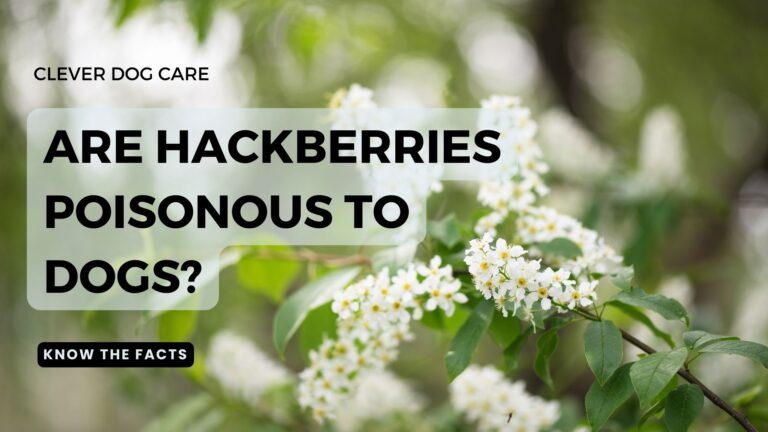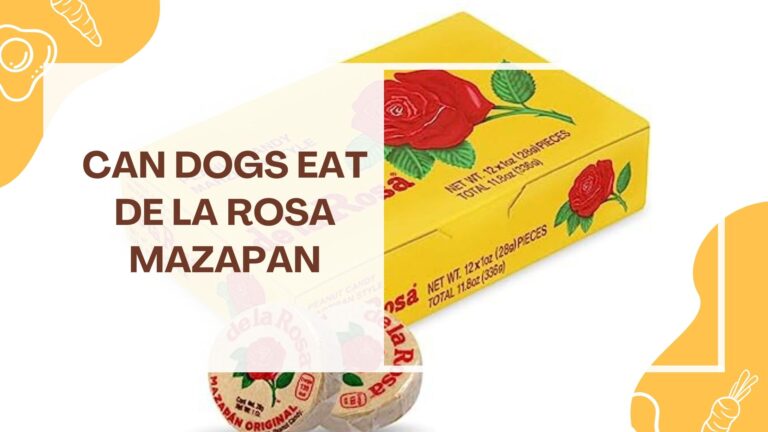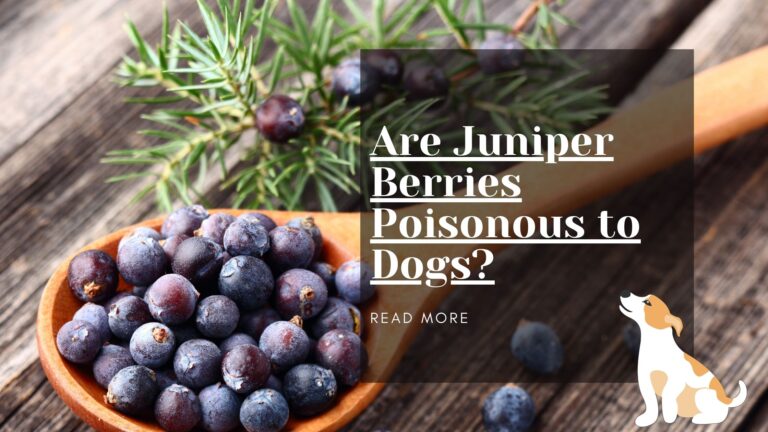Can Dogs Eat Quenepas? What You Should Know Before Feeding Your Dog
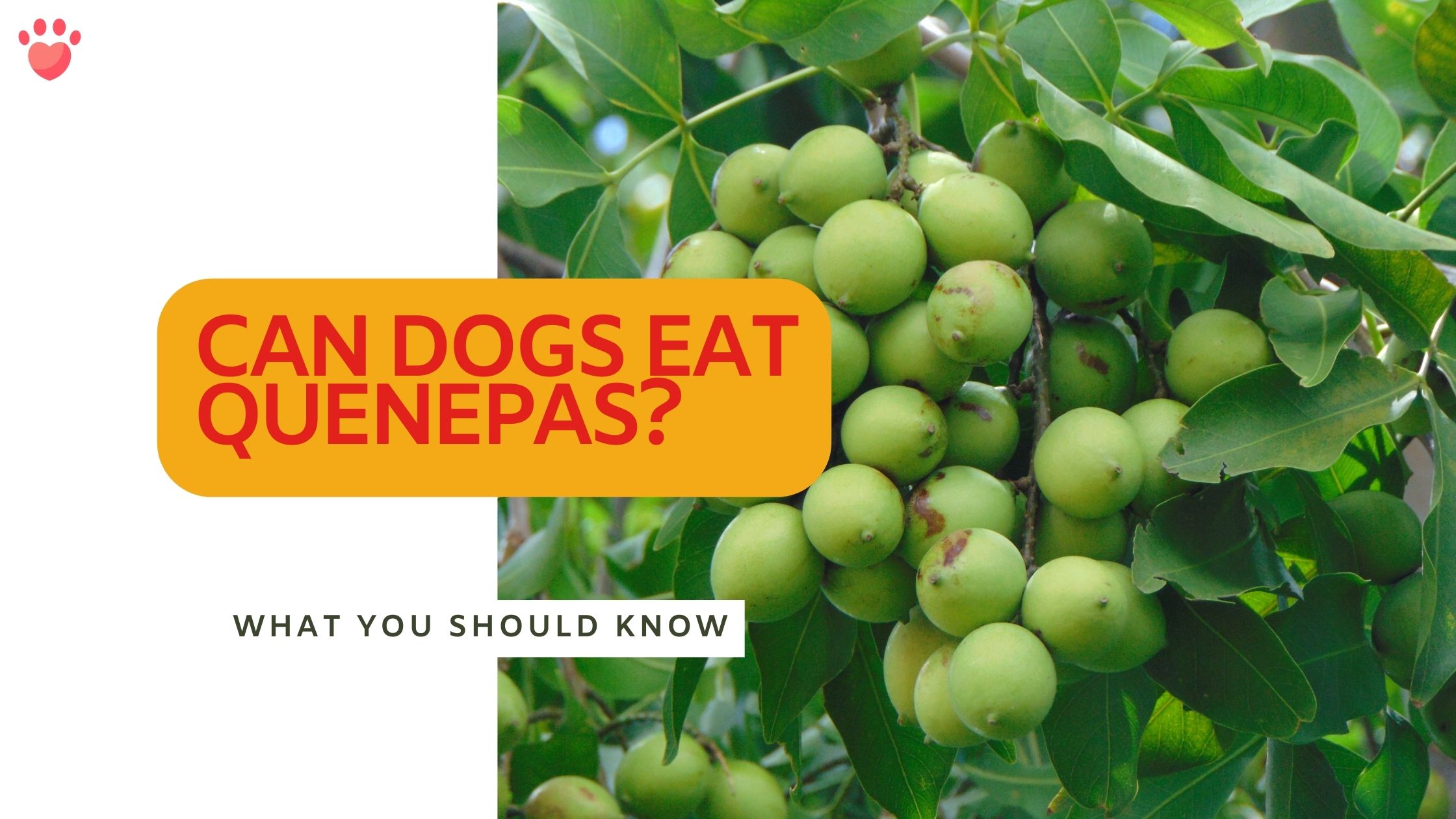
Have you ever heard of quenepas? It’s a delicious tropical fruit, but did you know that not all fruits are good for your furry friend? If you’ve ever wondered “Can dogs eat quenepas?”, then this article is for you! I’m here to help separate fact from fiction and give you the information you need on quenepas and pet nutrition.
As a veterinarian with many years of experience, I’ve seen firsthand the importance of pet owners providing their four-legged companions with healthy diets free from potentially harmful foods. In this article, we’ll take a look at what quenepas is, its nutritional content, and why it may or may not be suitable as part of your dogs diet. You’ll also learn about other nutritional options available to keep your pup in peak condition. So read on and let’s find out if it’s safe to feed Fido some quenepa goodness!
What are Quenepas?
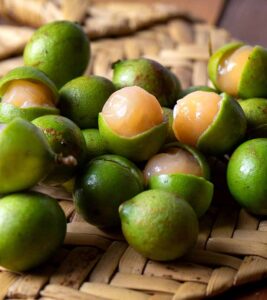
Quenepas are like little bursts of tropical paradise in your mouth. Picture this: you take a bite into the tough outer skin, and suddenly you’re met with an explosion of juicy flesh that’s like nectar from the gods. The taste is both sweet and tangy, creating a dance of flavors on your tongue that leaves you craving for more.
These small fruits are not only delicious but also incredibly versatile. You can eat them straight out of hand as a refreshing snack on a hot summer day or incorporate them into various recipes to add a unique twist. Imagine blending quenepas into a smoothie, adding their vibrant flavor to fruit salads or even using their juice as a marinade for meats – the possibilities are endless.
What makes quenepas even more fascinating is their rich cultural significance. In many Latin American countries, these delightful fruits are seen as symbols of unity and togetherness. Families gather under quenepa trees to share stories, laughter, and enjoy these delectable treats together. It’s not just about satisfying our taste buds; it’s about connecting with loved ones and celebrating life.
So next time you come across some quenepas at your local market or have the chance to try them while traveling abroad, don’t hesitate! Grab a bunch and experience the joy that comes with biting into these tiny treasures from nature’s bounty. Be prepared for an explosion of flavors that will transport you straight to sunny beaches and tropical bliss – one bite at a time!
If you’re interested in learning more about dogs and how to take the right care of them, we have a wealth of resources for you at cleverdogcare.com. One topic that might catch your attention is potentilla indica poisonous to dogs which provides practical tips on keeping your dogs healthy and not exposed to any diseases. We also have a comprehensive dog guide that covers various topics, including is echinacea poisonous to dogs ensuring you have a hassle-free guide.
Furthermore, we invite you to explore our study on the latest query which offers valuable insights on understanding the benefits and making an informed decision.
Nutritional Content of Quenepas
Quenepas, oh quenepas! These little fruits may be small in size, but they sure pack a punch when it comes to their nutritional benefits. Let me tell you all about it!
First and foremost, let’s talk about vitamins. Quenepas are bursting with vitamins A and C, two essential nutrients that our bodies absolutely adore. Vitamin A is like the superhero of eye health it keeps our peepers sharp and healthy. And as for vitamin C, well, we all know how important that is for boosting our immune systems and warding off those nasty colds.
But wait, there’s more! Quenepas also come equipped with a lineup of minerals that can do wonders for our bodies. Calcium? Yep, these tiny fruits have got plenty of it perfect for keeping our bones strong and sturdy. And let’s not forget about iron, this mighty mineral plays a crucial role in maintaining healthy blood circulation throughout our body.
In conclusion (and I must say quite enthusiastically), quenepas are truly nature’s gift to us humans! With their treasure trove of vitamins A and C, along with generous amounts of calcium and iron, these little powerhouses offer an array of health benefits just waiting to be enjoyed. So why not give them a try? Your taste buds will thank you while your body revels in the goodness packed with each juicy bite!
Can Dogs Eat Quenepas?

Feeding quenepas to dogs is a bit like asking them to join a vegan book club – it’s not their natural inclination. Dogs, my friend, are carnivores at heart. Their taste buds yearn for juicy cuts of meat and bones to gnaw on, not these exotic fruits.
Now, let’s get into the nitty-gritty. Quenepas are packed with vitamins A, C, and B6 – all great stuff for us humans! However, our furry companions have different dietary requirements. Dogs need high levels of protein and fat to thrive. Fruits like quenepas just don’t cut it when it comes to meeting those needs.
You see, canines lack the necessary enzymes in their digestive system to break down plant matter efficiently. This means that while your pooch may munch on a quenepa with gusto, they won’t be reaping the same nutritional benefits as you do.
Moreover, feeding your dog too much fruit can lead to an upset tummy or even diarrhea – nobody wants that mess! So if you really want to treat your pup right while satisfying their wild side instincts (#doggoals), stick with animal-based proteins like chicken or beef instead of tempting them with these tropical treasures.
Potential Risks of Feeding Dogs Quenepa
Quenepas, those little tropical fruits that are oh-so tempting to humans, can actually be a bit risky when it comes to our furry friends. They might pack some nutritional goodies, but there are dangers lurking beneath their enticing exterior.
One of the main concerns with giving quenepas to dogs is their tough outer skin. Just like us, dogs have an instinctual urge to gobble down food quickly. However, this can lead to trouble if they try swallowing a whole quenepa without properly breaking it down first. The thick skin poses a serious choking hazard and could potentially cause intestinal blockages that require immediate veterinary attention.
Another drawback lies in the high sugar content of these delightful fruits. While we may enjoy indulging in sweet treats from time to time, too much sugar can wreak havoc on doggy digestive systems. Feeding your pup too many quenepas could result in upset stomachs or even unwanted weight gain over time.
- Dangerous choking hazard: Quenepa’s tough outer skin poses a serious risk for dogs who gulp down food without chewing thoroughly.
- Potential for intestinal blockages: Ingesting whole quenepas can lead to severe health issues if the fruit gets stuck in the dog’s digestive tract.
- Sugar overload: Quenepas’ high sugar content may cause digestive upset and contribute to unhealthy weight gain in some pups.
In conclusion, while we may savor the deliciousness of quenepas ourselves, it’s important for pet owners to exercise caution when considering sharing these fruits with their four-legged companions due to potential choking hazards and sugary side effects.
Alternative Nutritional Options for Dogs
When it comes to your furry friend’s nutrition, it’s important to strike the right balance between yummy treats and their overall well-being. While quenepa treats may seem enticing, it’s worth exploring other alternatives that can provide the necessary nutrition for your dog without any potential health risks.
1. Fresh fruits and vegetables: Instead of reaching for a bag of quenepas, why not opt for some fresh fruits and veggies? Not only are they packed with essential vitamins and minerals, but many dogs also enjoy the sweet or crunchy taste. Try offering them slices of apple or carrot sticks as a healthy snack option.
2. High-quality commercial treats: If you’re looking for ready-made options, there are plenty of nutritious dog treats available in stores. Look for ones made from natural ingredients without any added artificial flavors or preservatives. Some brands even offer specific formulas tailored to certain dietary needs such as grain-free or hypoallergenic snacks.
3. Homemade goodies: For those who like to get creative in the kitchen, making homemade dog treats can be a fun and rewarding experience. You have full control over the ingredients used and can cater to your dog’s individual tastes and dietary requirements.
- Banana-oat cookies
- Sweet potato chews
- Peanut butter-banana bites
Fruits Safe for Dogs: Opt for dog-friendly fruits like apples or blueberries that provide similar vitamins and minerals without the potential risks.
The concept of resilience is becoming more and more popular in the professional world. It refers to an individual’s mental capacity to cope with difficult situations, responding with strength and perseverance instead of falling into a state of despair or giving up altogether. This quality can be developed through practice and mindfulness, allowing individuals to become better adapted for life’s challenges.
Resilience is invaluable in times of adversity it gives people the strength needed to stay focused on overcoming obstacles that would otherwise seem insurmountable. Resilience also leads to better decision making as we learn how best handle emotionally-charged events without letting them cloud our judgement or prevent us from taking proactive steps towards progress. With resilience, we are able to maintain perspective even during stressful periods, enabling us to keep working towards our goals without succumbing to distraction.
In addition, resilience allows us to recognize our weaknesses as well as capitalize on our strengths when facing difficulties. We can challenge ourselves while also being mindful not take on too much this self-awareness helps build confidence and encourages further growth over time by pushing boundaries until reaching desired outcomes regardless of setbacks encountered along the way.
“Apples and blueberries make great choices as they offer vitamins while being safe for canine consumption.”
3.Cooked Vegetables: Steam vegetables such as carrots or broccoli before offering them to your pup – these veggies are low in calories and packed with essential nutrients.
“Steamed carrots or broccoli are nutritious options for your furry friend, providing necessary nutrients without excess calories.”
Consulting Your Veterinarian
When it comes to our furry friends, their health and well-being are of utmost importance. And just like us humans, what they eat plays a crucial role in maintaining their overall health. That’s why it’s always a good idea to consult with your veterinarian before introducing any new food to your dog’s diet.
Veterinarians are experts when it comes to understanding the unique dietary needs of dogs. They have extensive knowledge about different breeds and can tailor their advice based on your dog’s specific health history. So whether you’re considering adding quenepas those juicy tropical fruits or any other food item into your dog’s meals, consulting with your vet is essential.
- Firstly, veterinarians can assess if the new food might cause any allergies or adverse reactions in your pup. Dogs can be sensitive to certain foods just like humans, and knowing this beforehand can prevent any potential harm.
- Secondly, vets understand the nutritional requirements for dogs at different stages of life. Puppies have different dietary needs compared to adult dogs, and senior dogs may require special diets due to age-related conditions.
- Lastly, veterinarians keep up with the latest research on pet nutrition and know which foods are safe for canine consumption. Their expertise ensures that you make informed decisions when offering new foods as treats or incorporating them into regular meals.
In summary, while quenepas may seem like a tasty treat for our four-legged companions, it’s crucial to talk things over with your vet first before making them part of Fido’s menu!
FAQ
1. Can dogs eat quenepas?
– Yes, dogs can safely consume quenepas in moderation.
2. Are quenepas toxic to dogs?
– No, quenepas are not toxic to dogs when consumed in reasonable amounts.
3. How should I prepare quenepas for my dog?
– It is recommended to remove the outer skin and pit before feeding quenepas to your dog. Offer small pieces or mash them into a puree for easier digestion.
4. What are the benefits of feeding my dog quenepas?
– Quenepas are rich in vitamins A and C, which can help support your dog’s immune system and promote healthy skin and coat.
5. Can giving too many quenepas cause stomach upset in dogs?
– Yes, overfeeding any new food can potentially lead to digestive issues such as diarrhea or upset stomach in some dogs. Start with small amounts and monitor their reaction before increasing the serving size.
Lorem ipsum dolor sit amet, consectetur adipiscing elit. Ut elit tellus, luctus nec ullamcorper mattis, pulvinar dapibus leo.
Lorem ipsum dolor sit amet, consectetur adipiscing elit. Ut elit tellus, luctus nec ullamcorper mattis, pulvinar dapibus leo.



